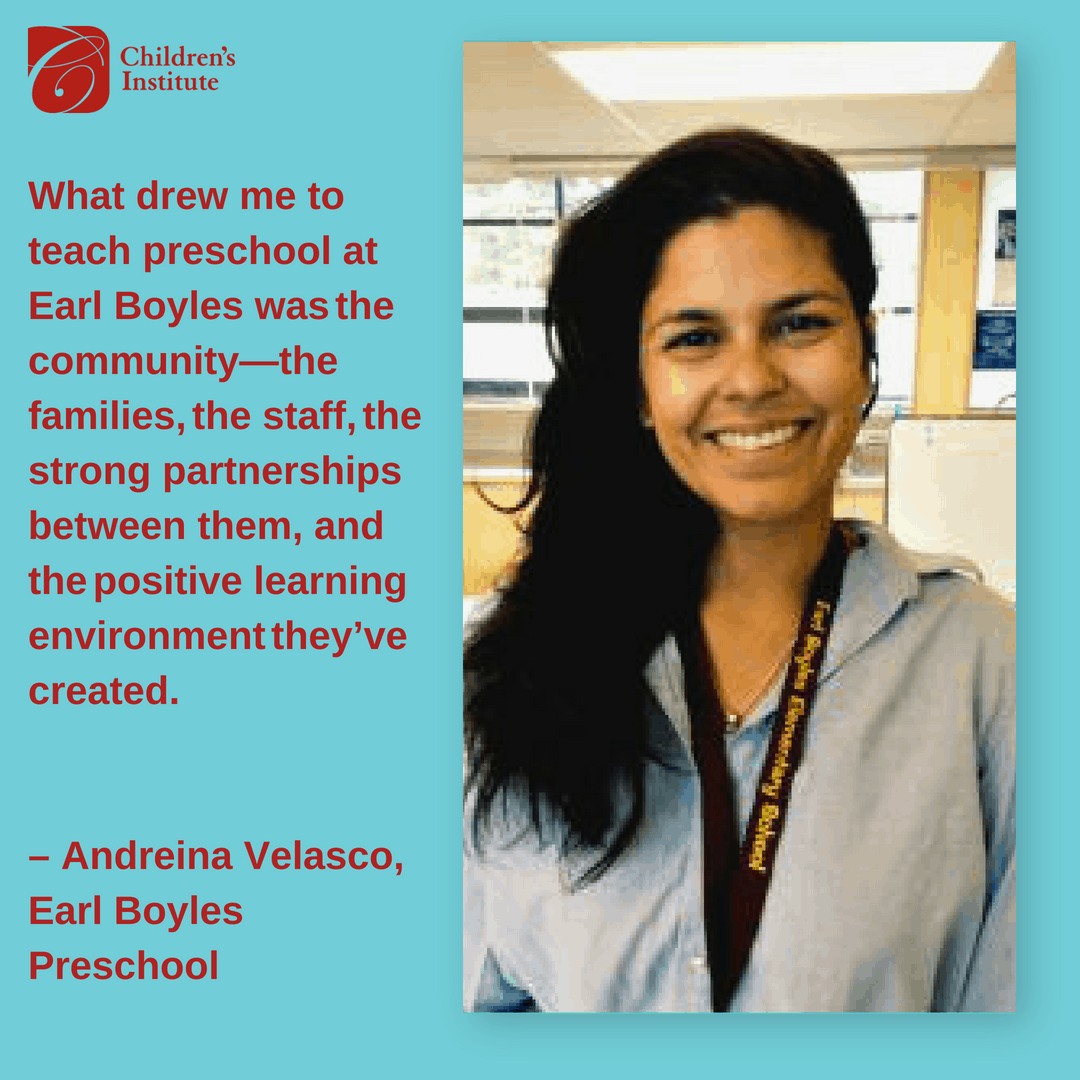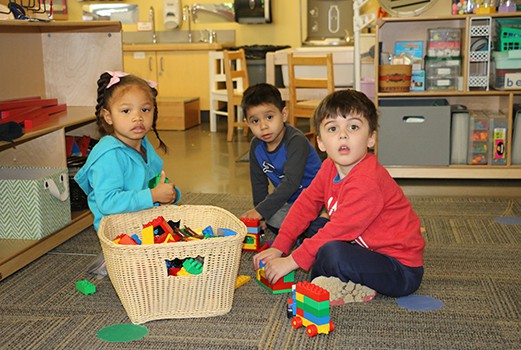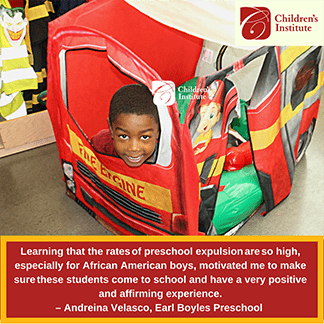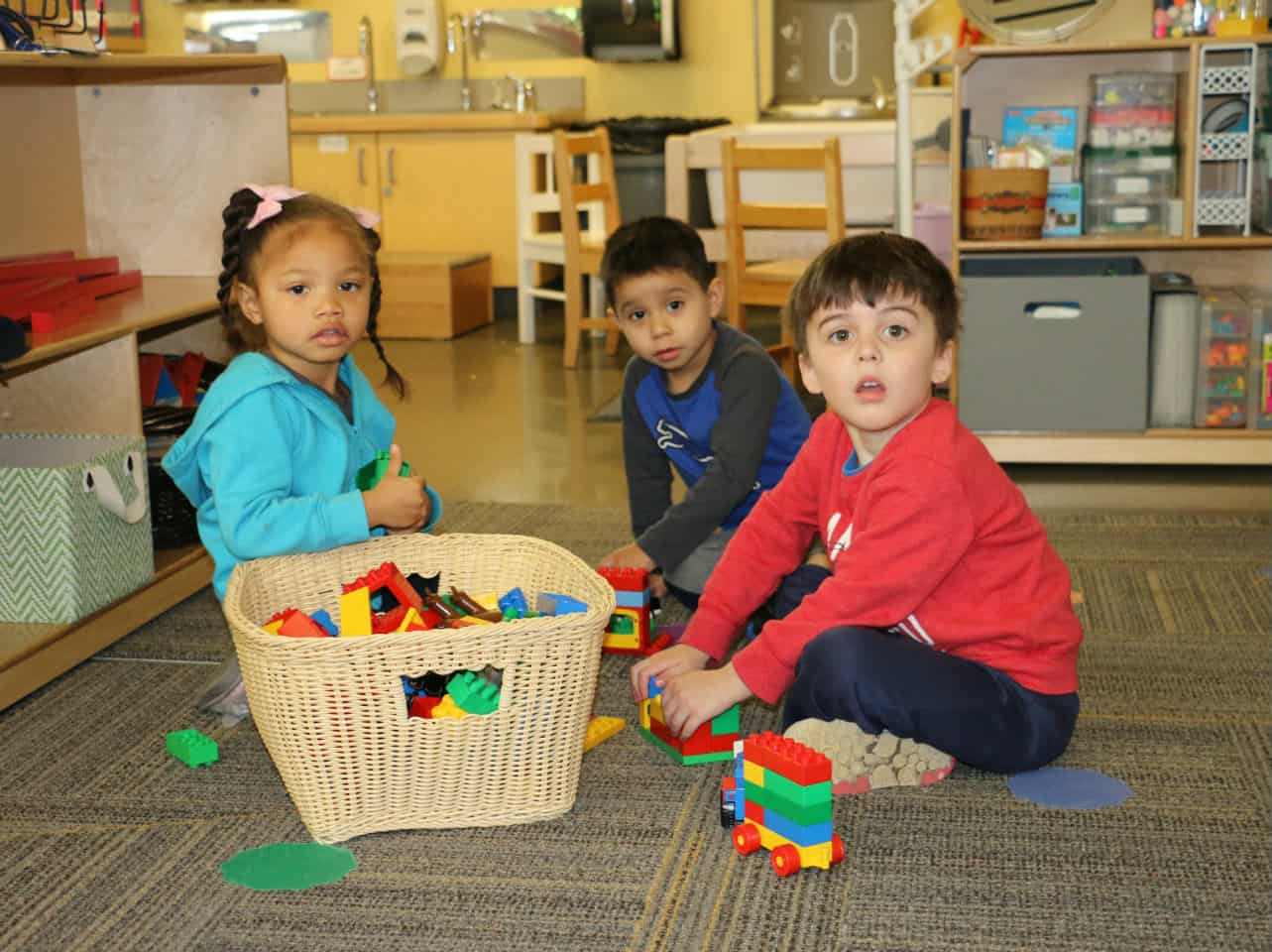This summer Children’s Institute is highlighting the important work of early childhood educators teaching preschool through third grade. In this series of profiles, teachers from across the state tell us why they teach young children, what they wish people knew about their work, and what they’ve learned in their jobs.

Andreina Velasco Reflects on the Value of Community and a Supportive Administration
Andreina Velasco is a preschool teacher at Earl Boyles Elementary School. The Earl Boyles preschool offers publicly funded preschool to all children in the school’s catchment area. As part of the Early Works initiative, the program provides families with children from birth to grade three with learning opportunities, health and housing supports, and other resources.
Why do you teach preschool?
I was working at Children’s Institute as the Early Works site liaison and before that the family engagement coordinator, so I had a strong connection with the Earl Boyles community, school, and program. What drew me to teach preschool here was that community—the families, the staff, the strong partnerships between them, and the positive learning environment they’ve created. Preschool is the first connection between children and families and the formal education system, at least here at Earl Boyles, because all kids have access to public preschool. That inspires me because it means that I can be the first positive connection between children and families and the school. I want to make sure that it’s a really affirming, validating, and positive experience for everyone, so that further on in their academic careers they have that as a baseline.
Preschool—at least the way it’s structured here—also allows time and space to partner with families a lot more, which is a part of the job that I really appreciate. We have time for home visits, and to develop curriculum that is responsive to the children’s and the families’ interests. All those factors really inspire me to teach preschool here. I don’t know if that’s the case in all settings, so that’s why I specify that it’s here at Earl Boyles that I’m really interested in teaching preschool, because of those strong partnerships and the time and space given to develop them.
What is one thing about your job you wish people knew?
I always say that it’s the best teaching job in the world. I have so much support in the classroom. I have two incredible assistants who are highly skilled educators, reflective of the community: one is a mom in the school and the other was a student in the school and has siblings here, and we’re all women of color. Having their support in the classroom is phenomenal, as well as the administrative support from [Principal] Ericka [Guynes], who is very responsive to our teaching needs. What I would really want people to know, then, is that teachers can be very happy in their roles if they are supported by their administration and their district. This support allows us to be a fully inclusive environment for kids with special needs, and to serve a highly diverse population in terms of cultural backgrounds, ethnicities, and socioeconomic status. We can have that kind of environment if teachers are really well-supported.

“What I would really want people to know, then, is that teachers can be very happy in their roles if they are supported by their administration and their district.”
Can you describe a learning experience you’ve had that has impacted your teaching?
This year we’ve been starting to think about equity and culturally responsive practices, and I read an article that Children’s Institute published about preschool expulsions. It was shocking for me that the rates of expulsion are so high, especially for African American boys. Learning that really impacted me, motivating me to do a lot of internal work and start leading work among our staff so that doesn’t happen here—to any of our kids, but specifically to African American boys. I want to make sure they come to school and have a very positive and affirming experience.

For more from teachers in their own words, check out our Q&A with Megan Barber, the lead teacher and director of the preschool at the Early Works site in Yoncalla, Oregon.

